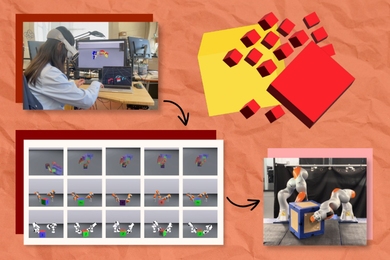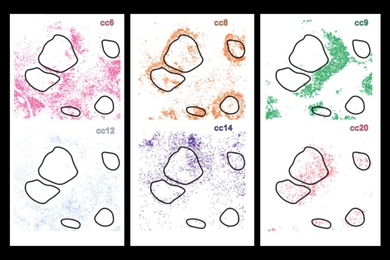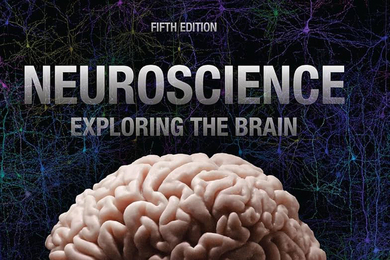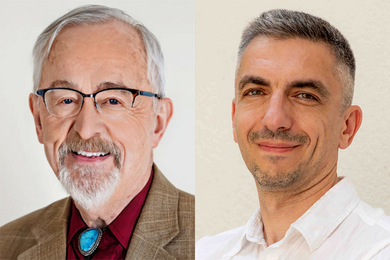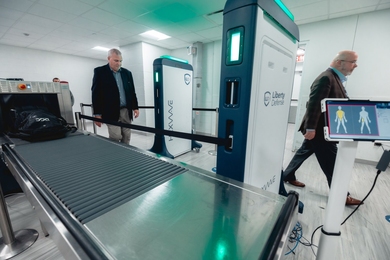Department of Mechanical Engineering Assistant Professor Rohit Karnik and Department of Nuclear Science and Engineering Assistant Professor Felix Parra have been awarded Early Career Research Program grants by the Department of Energy (DOE).
The awards are two of 68 chosen from 850 proposals; the program supports the development of individual research programs of outstanding scientists early in their careers and stimulates research careers in the disciplines supported by the DOE Office of Science. The research areas supported by this program include: advanced scientific computing research; biological and environmental research; basic energy sciences, fusion energy sciences; high-energy physics, and nuclear physics.
Karnik’s award will support his project on “Graphene Membranes with Tunable Nanometer‐Scale Pores”; Parra’s award will support his project on “Spontaneous Generation of Rotation in Tokamak Plasmas.”
In Karnik’s project, high‐resolution imaging will be used to study graphene’s pore structures, and transport measurements will be performed on large‐area membranes as well as on single pores. The study will result in fundamental understanding of the relationship between fabrication methods, pore structures and transport properties of graphene membranes, which may lead to significant advances in a wide range of separations applications. Karnik’s project was selected by the Office of Basic Energy Sciences.
The objective of Parra’s project is to develop the theoretical and numerical tools to study and predict the spontaneous rotation in tokamaks, and using these tools, to design new configurations that exploit spontaneous plasma rotation to improve performance. The theoretical results obtained during the research will be checked against experimental observations systematically to validate these completely new modeling tools. With the new insights gained, a tokamak that will rotate to high speed in the absence of external momentum sources will be designed. No previous tokamak has been built to optimize rotation in the absence of external injection, and this new design criterion may open new avenues to better performance. Parra’s project was selected for the award by the DOE Office of Fusion Energy Sciences.
The awards are two of 68 chosen from 850 proposals; the program supports the development of individual research programs of outstanding scientists early in their careers and stimulates research careers in the disciplines supported by the DOE Office of Science. The research areas supported by this program include: advanced scientific computing research; biological and environmental research; basic energy sciences, fusion energy sciences; high-energy physics, and nuclear physics.
Karnik’s award will support his project on “Graphene Membranes with Tunable Nanometer‐Scale Pores”; Parra’s award will support his project on “Spontaneous Generation of Rotation in Tokamak Plasmas.”
In Karnik’s project, high‐resolution imaging will be used to study graphene’s pore structures, and transport measurements will be performed on large‐area membranes as well as on single pores. The study will result in fundamental understanding of the relationship between fabrication methods, pore structures and transport properties of graphene membranes, which may lead to significant advances in a wide range of separations applications. Karnik’s project was selected by the Office of Basic Energy Sciences.
The objective of Parra’s project is to develop the theoretical and numerical tools to study and predict the spontaneous rotation in tokamaks, and using these tools, to design new configurations that exploit spontaneous plasma rotation to improve performance. The theoretical results obtained during the research will be checked against experimental observations systematically to validate these completely new modeling tools. With the new insights gained, a tokamak that will rotate to high speed in the absence of external momentum sources will be designed. No previous tokamak has been built to optimize rotation in the absence of external injection, and this new design criterion may open new avenues to better performance. Parra’s project was selected for the award by the DOE Office of Fusion Energy Sciences.

